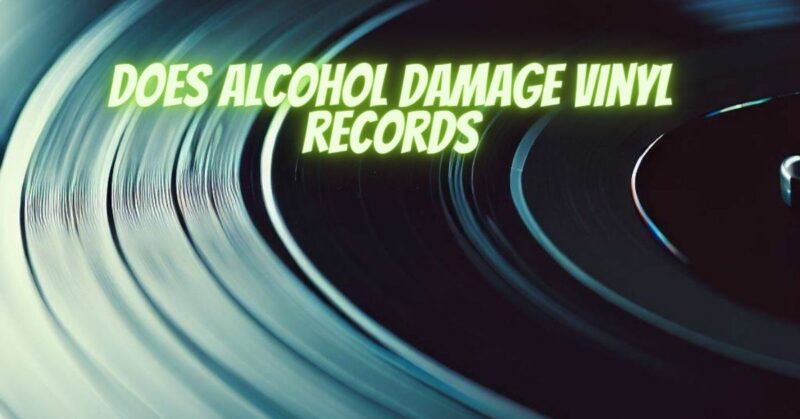Vinyl records, cherished for their warm analog sound and tactile appeal, have experienced a remarkable resurgence in recent years. As vinyl enthusiasts continue to invest in and care for their collections, questions arise about potential threats to the delicate grooves of these cherished discs. In this article, we delve into the relationship between alcohol and vinyl records, exploring whether the spirits we enjoy can pose a threat to the longevity and quality of our beloved vinyl.
- Vinyl Composition and Vulnerability:
Vinyl records are composed of polyvinyl chloride (PVC), a durable plastic that is inherently resistant to moisture and common environmental factors. However, the grooves on a vinyl record are incredibly delicate and can be susceptible to damage from foreign substances, including liquids.
- Alcohol and Its Effects on Vinyl:
Alcohol, a common solvent, has both cleaning and potentially damaging properties. While high-proof alcohol is often used in vinyl record cleaning solutions to remove dirt and debris, the use of undiluted or harsh alcohols can pose risks. Alcohol, especially if it contains impurities, can potentially react with the vinyl material, leading to issues such as warping or surface damage.
- Cleaning Vinyl Records:
When used responsibly, alcohol can be part of an effective cleaning regimen for vinyl records. However, it is crucial to dilute the alcohol appropriately and use a record cleaning solution specifically designed for vinyl. Additionally, a soft, lint-free cloth or a specialized record brush should be employed to avoid scratches during the cleaning process.
- Avoiding Direct Contact:
While alcohol-based cleaning solutions are designed to evaporate quickly, it is crucial to avoid direct contact between undiluted alcohol and vinyl records. Spills or drips can seep into the record grooves and potentially lead to long-term damage. Careful application and swift drying are essential when using any cleaning solution containing alcohol.
- Storing Vinyl Away from Liquids:
Prevention is often the best approach. Storing vinyl records away from areas where spills are likely, such as near a bar or in a kitchen, can mitigate the risk of alcohol coming into contact with the delicate surfaces of the records. Proper storage in a cool, dry environment remains a fundamental practice for preserving vinyl records.
- Alternative Cleaning Methods:
For those wary of using alcohol-based solutions, there are alternative methods for cleaning vinyl records. Mild dish soap and distilled water, when used sparingly and with care, can effectively remove dirt and grime without the potential risks associated with alcohol.
While alcohol can play a role in maintaining the cleanliness of vinyl records, it is essential to approach its use with caution and responsibility. Diluted alcohol in proper cleaning solutions, when applied carefully, can contribute to the longevity of vinyl records. However, undiluted alcohol or spills can pose risks to the delicate grooves and surfaces of these cherished musical artifacts. As guardians of our vinyl collections, a balance of knowledge and care is crucial to ensuring that our records continue to provide the rich, analog experience that makes vinyl a timeless medium for music enthusiasts.

